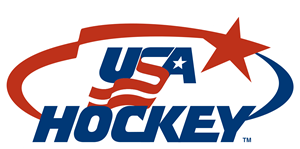Concussion Information
An important goal of the Winnetka Hockey Club is to promote a safe environment for our players by administering effective concussion management policies and procedures.
Continuing to play with a concussion or symptoms of a head injury not only leaves the player vulnerable to greater injury, but also may prolong recovery. WHC supports a cautious and conservative approach to concussions and head injuries by ensuring we are in compliance with our Concussion Management Guidelines.
Winnetka Hockey Club encourages all players to complete baseline ImPACT (Immediate Post-Concussion Assessment and Cognitive Testing) before the season begins. This establishes a benchmark in the event a players becomes injured.
If a coach suspects a player may have sustained a concussion, he will sit the player down and evaluate. If there is any indication of an injury, the players parents will be asked to come the bench to help evaluate their child. Coaches have the ability to override a parents decision to let a kid back in the game/practice.
Players with a suspected head injury and/or displaying symptomatic signs of a head injury should sit out until cleared by a physician. The physician clearance should come from a physician familiar with ImPACT neuropsychological testing. It is strongly recommended that any athlete who has been diagnosed with a concussion take a post-injury ImPACT test to ensure that they are back within baseline performance levels before clearance to play is given.
What is a concussion?
A concussion is a type of traumatic brain injury. Concussions are caused by a bump or blow to the head. Even a “ding,” “getting your bell rung,” or what seems to be a mild bump or blow to the head can be serious.
You can’t see a concussion. Signs and symptoms of concussion can show up right after the injury or may not appear or be noticed until days or weeks after the injury. If your child reports any symptoms of concussion, or if you notice the symptoms yourself, seek medical attention right away.
Symptoms reported by athlete
• Headache or “pressure” in head • Nausea or vomiting
• Balance problems or dizziness • Double or blurry vision
• Sensitivity to light
• Sensitivity to noise
• Feeling sluggish, hazy, foggy, or groggy
• Concentration or memory problems
• Confusion
• Just not “feeling right” or is “feeling down”
Symptoms observed by adult
• Appears dazed or stunned
• Is confused about assignment or position
• Forgets an instruction
• Is unsure of game, score, or opponent
• Moves clumsily
• Answers questions slowly
• Loses consciousness (even briefly)
• Shows mood, behavior, or personality changes
Oops!
You have unsaved elements
Please save or cancel the pending changes to the elements within your page and then try saving again.




